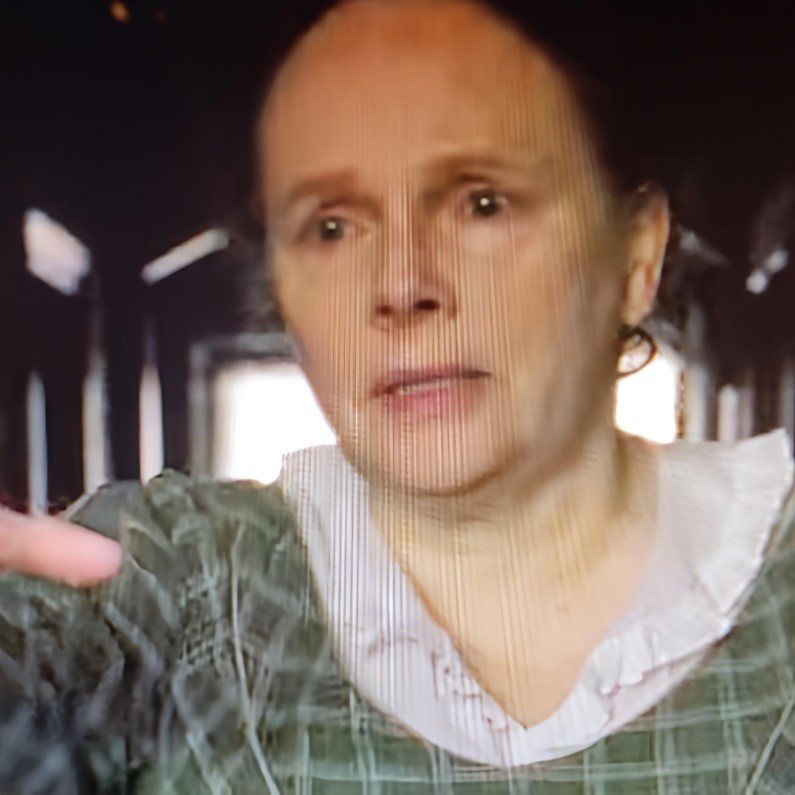In Little Women (2019) Mrs. Kirke is played by Maryann Plunkett, an actor and singer who has become quite notable on Broadway and was a winner of a Tony Award for Best Leading Actress in a musical. Her background in theater is an aid to giving this minor character life as it adds an expressive element to her small role. Mrs. Kirke is the owner of the boarding house that Jo March and Professor Bhaer live in New York City. She is a mother of two daughters in which she has hired Jo to teach. Giving the main character Jo a job to be able to support her family back home while pursuing her writing, and a place to stay. Mrs. Kirke is a busy woman who is often scene with messy hair in plain dress and an apron. In most of her scenes she is always doing something, whether frantically introducing her kids to Jo or carrying something it is evident she is a hard worker. As the viewer we get the impression that she is a fair woman but also knows when to hold her own. In one scene, Jo and us as the viewer, overhear her talking to potential new tenants who are trying to barter their rent. She sets them straight that what she is doing is a business and takes great pride in her work. She even at times expresses her pride at the educated individuals that her boarding house attracts. Despite what we do know of her she is a minor character. In the essay “Scales of presence: Bess Flowers and the Hollywood extra,” Will Straw discusses the role of these characters and how the fit into the hierarchy of characters on screen. That their role is to interact with the main characters to incite action, while also being apart of the set dressing. It is due to Mrs. Kirke that Jo is able to support her family while pursuing her writing, but it is also because of her that Jo is able to meet Bhaer the man she later marries.
Work Cited
Little Women. Directed by Greta Gerwig, performances by Saoirse Ronan and Maryann Plunkett, Sony Pictures, 2019.
Straw, Will. “Scales of presence: Bess Flowers and the Hollywood extra.” Screen, vol. 52, no. 1, March 2011, pp. 121 – 127. https://doi.org/10.1093/screen/hjq061

Provide Feedback